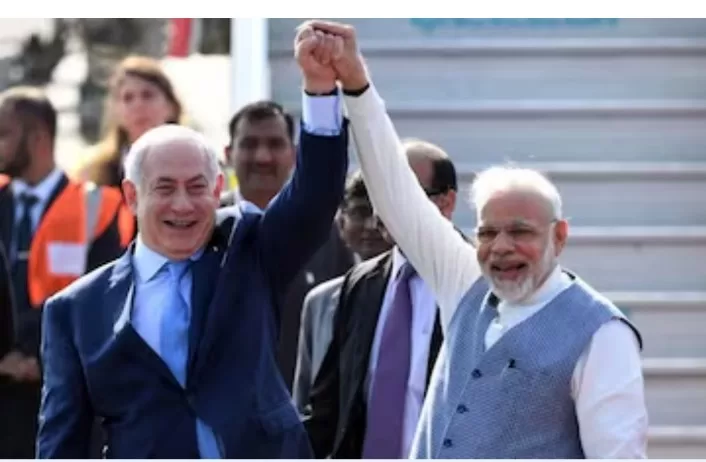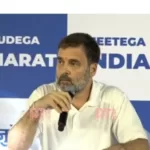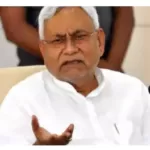In the wake of escalating tensions between Israel and Hamas, India finds itself delicately balancing its diplomatic stance. This challenge emerges at a crucial juncture when India was actively seeking a more substantial role in the Middle East through regional alliances and heightened diplomatic initiatives.
In response to reports of Hamas launching rocket attacks on Israeli cities, Prime Minister Narendra Modi expressed his deep concern and condolences via social media. He unequivocally condemned the acts of terrorism, offering thoughts and prayers for the innocent victims and their families. Additionally, he expressed solidarity with Israel during this trying period.
As of now, the Indian External Affairs Ministry has refrained from issuing an official statement. External Affairs Minister S. Jaishankar and the ministry’s official handles have chosen to echo the Prime Minister’s sentiments through retweets.
The ongoing violence in Israel has created a stark division in global public opinion. One faction condemns the terrorist attack, while the other contends that Israel’s actions in Palestine provoked this retaliatory response. Prime Minister Modi’s resolute support for Tel Aviv is viewed as a significant gesture in favor of Israel.
This development is particularly noteworthy in light of China and Pakistan’s responses. India currently maintains strained diplomatic ties with both nations. China expressed deep concern about the escalating tension and violence between Israel and Palestine, despite the absence of specific bilateral issues between Beijing and Tel Aviv. Pakistan’s Prime Minister Shehbaz Sharif attributed the cycle of violence in the region to Israel’s “illegal occupation,” raising questions about the legitimate right to self-determination and statehood for Palestinians.
India’s Focus on the Gulf Region
The Israel-Gaza conflict unfolds shortly after India, along with the US, Saudi Arabia, the UAE, France, Germany, Italy, and the European Union, unveiled the India-Middle East-Europe Economic Corridor during the G20 Summit in New Delhi. Prime Minister Modi emphasized that this connectivity project would serve as the foundation of global trade for centuries and was perceived as a counter to China’s Belt and Road Initiative.
The recent surge in violence places Saudi Arabia in a challenging position, given that the US was mediating the normalization of its ties with Israel. Hamas’ attack is seen as a clear message to Riyadh. Saudi Arabia has called for an immediate cessation of violence, emphasizing that the continued occupation and deprivation of Palestinian rights could lead to an explosive situation. This stance hints at the potential derailment of ambitious plans.
Under the leadership of Prime Minister Narendra Modi, India’s relations with Saudi Arabia have flourished, with increased bilateral visits and the signing of the Strategic Partnership Council (SPC) Agreement. The Kingdom honored PM Modi with its highest civilian honor. The Prime Minister’s visits to various Middle Eastern nations, including Jordan, Oman, UAE, Palestine, Qatar, and Egypt, underscore India’s commitment to maintaining a significant presence in the Middle East.
India’s Changing Priorities
India’s diplomatic priorities in the Middle East have evolved from primarily trade-related interests to encompass strategic and political dimensions. These shifts are driven by India’s aspiration to counter China and establish itself as a key global player.
India’s Historical Stand on Israel vs. Palestine
India’s stance on the Israel-Palestine conflict has traversed a wide spectrum since gaining independence. India officially recognized the State of Israel in 1950, a decision influenced by various factors. As a nation that had experienced the traumatic partition on religious lines, India initially opposed the creation of two nations based on religion. Additionally, Prime Minister Jawaharlal Nehru cited India’s desire not to offend its friends in the Arab countries as a reason for refraining from recognizing Israel.
Over the years, India’s engagement with Israel remained limited while maintaining relations with the Palestine Liberation Organization (PLO) led by Yasser Arafat.
The governments of Indira Gandhi and Rajiv Gandhi continued to lend support to the Palestinian cause, even as this stance garnered domestic criticism, particularly after the Arab world maintained neutrality during the 1962 India-China War and supported Pakistan in the wars of 1965 and 1971.
Two pivotal factors triggered a significant shift in India’s Middle East policy: Iraq’s invasion of Kuwait and the dissolution of the Soviet Union. PLO’s support for Saddam Hussein and the changing dynamics of the Non-Aligned Movement following the end of the Cold War compelled India to realign its policies with emerging realities. Consequently, India established full diplomatic relations with Israel in 1992. Bilateral relations strengthened significantly under the leadership of Prime Minister Atal Bihari Vajpayee, with Israel providing India with urgent military supplies during the 1999 Kargil War.
Despite this diplomatic shift, India continued to publicly support the Palestinian cause while fostering good relations with Israel.
The Complex Challenge for India
The current escalation of violence presents a complex diplomatic challenge for India, impacting its extensive interests in the Middle East. Striking a careful balance becomes imperative to safeguard India’s strategic, economic, and cultural relations. India’s cautious approach to the Israel-Hamas conflict underscores the intricate nature of the situation and the substantial stakes involved.







